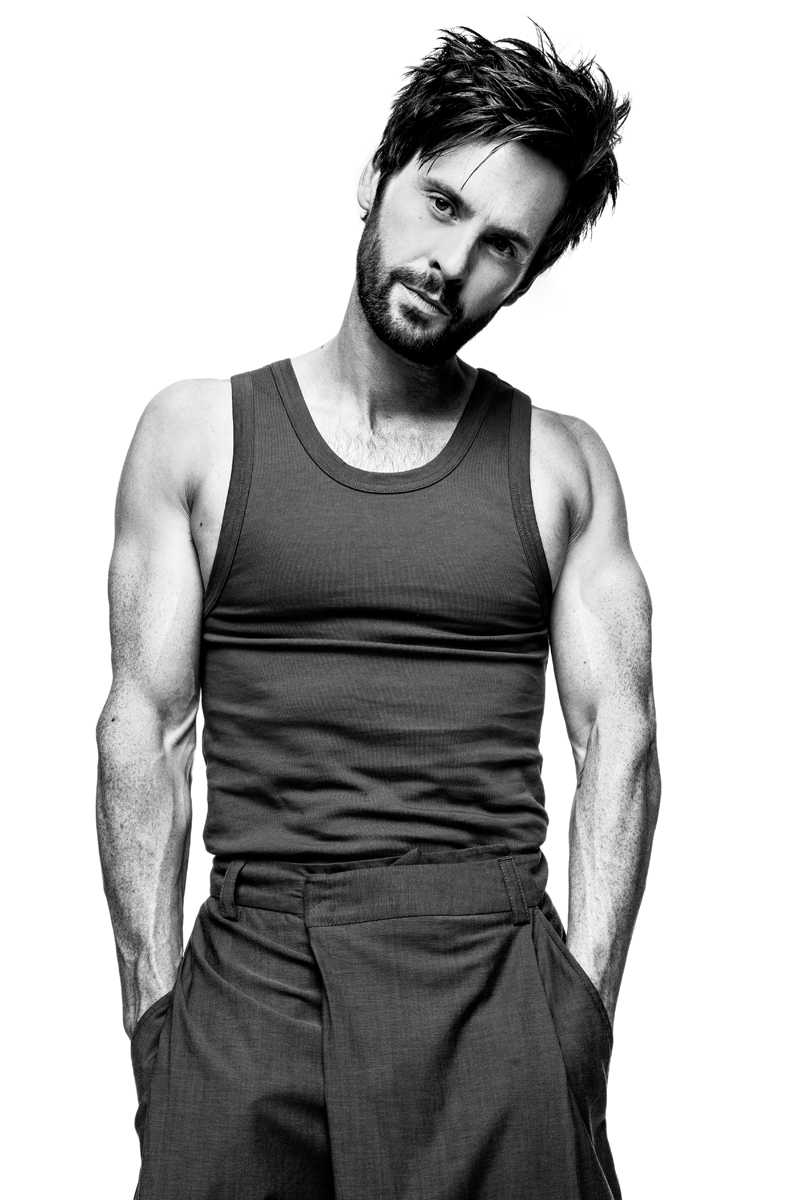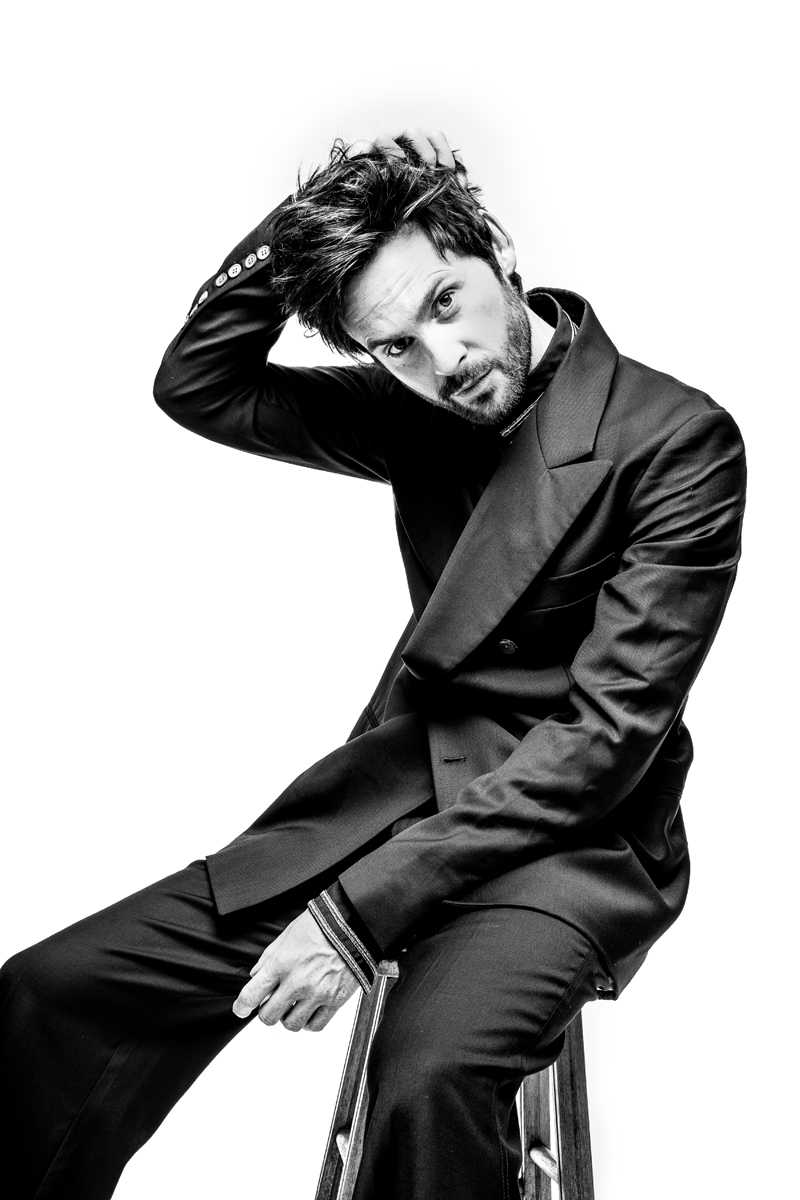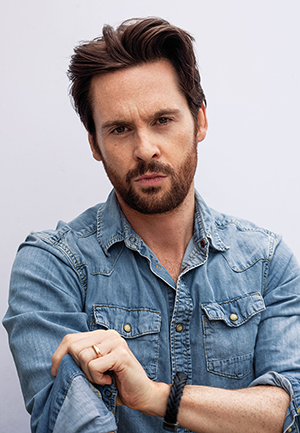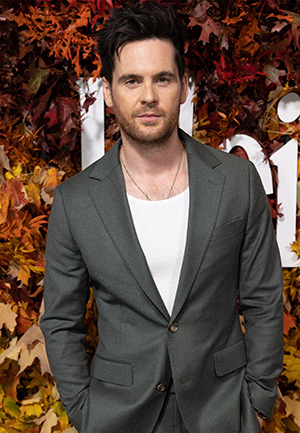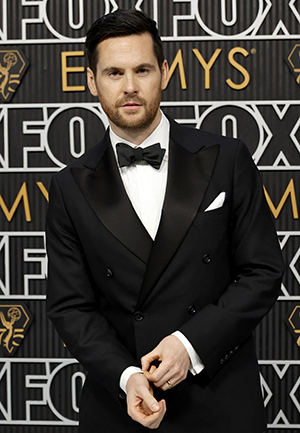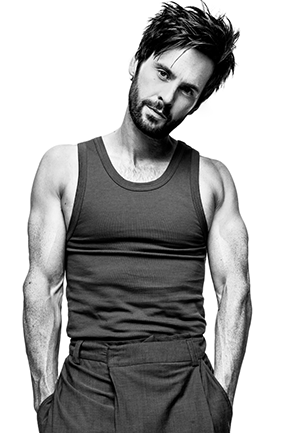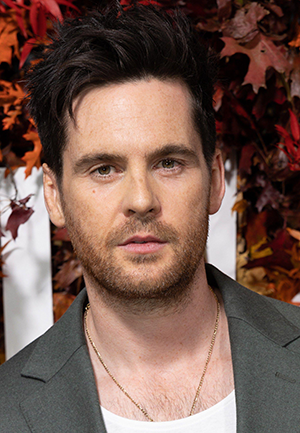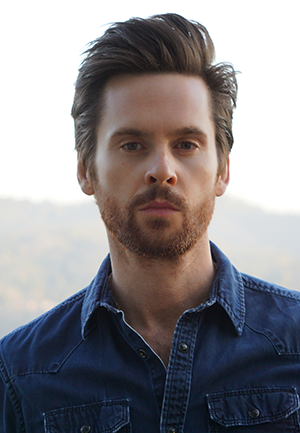A fabulous new interview and photoshoot with Tom Riley has been shared online by Content Mode magazine. Tom chats about prepping a new feature film, working on The Nevers and The Woman in the House, as well as his hankering to do more Da Vinci's Demons. Tom already posted most of the photos on his Instagram account, but check out the full interview on the Content Mode website. This makes up for the complete lack of promotional images / trailer glimpses of Tom's character Augie in The Nevers for the last few weeks.
AK: Since you were very young, your life has revolved around theatre. As an adult, how do you keep yourself invested in the art? What keeps you motivated?
TR: I think, like anything, your passion for art can ebb and flow, depending on the circumstances that surround its creation. As far as my desire to consume it, that has never wavered — be it theatre, film, books, high and low culture, music. That’s always been something I’ve tried to fill my life with, and it can feel empty without it. But the creation of it is different. The fact it’s a business means you’re always wrestling with the result of what you’re creating rather than the process. And if that result is disheartening or perceived as unjust, it can take the shine off the next attempt. The trick is just keep getting up, keep finding new ways to rediscover your love for it. And although you should take the work seriously, maybe stop doing the same with yourself.
AK: You have always dabbled in writing and directing as well, even in your school years. Growing up, were you planning on pursuing this more so than acting? Or was acting always the plan?
TR: Plan feels a little strong, but acting was the thing that happened first, professionally. Yeah, I’d dabbled in all of that as a kid and at university, and always felt at my most fulfilled when able to indulge all of it. Or at least bounce from one to the other. But I ended up getting into drama school after uni, and that was a very clear path towards one medium, and when I started working, I tried to suck up every part of the onset experience, in the hope that if I ever got a chance to flex those other muscles again, I would have learned as much as possible through osmosis.
AK: The first film you directed was “The Toll Road.” Can you speak a little bit to the process of creating this film and what you learned from it?
TR: It was a short, with a brilliant screenplay by Richard Galazka, who’s career is taking off in a big way currently. But like longer features, it was a struggle to find the money, the time, and the cast. Once we got there, achieving the entire thing in a week, with only 24 hours of shooting, it became a lesson in decisive, clear choices. Problem-solving, capturing moments you hadn’t foreseen on the way to find the moments you had. I loved every minute. The same team is currently prepping a feature, with its own original story, and its own uphill battles, and I can’t wait to feel frustrated and excited all over again.
AK: Unlike some actors, you studied for quite a while. You even started a theatre company Article 19 at The University of Birmingham, where you attended. Why do you value education in theatre and acting? What advantages do you think it gave you?
TR: I think that looks more like a choice than it was. The truth is, I had no way in to the industry. Nobody in my family, nobody at my school, nobody to give any advice. I went to university to do English Literature simply because the assumption was I’d need a fallback. It was only there, where, like you say, I got a chance to direct and act in plays, to host radio shows etc, that I realized there was only one world I wanted to be in, and it was the tutors who pointed me in the direction of possible next steps.
AK: Your new series, “The Nevers,” is airing now. Can you speak to your experience on this set? What are you looking forward to most about it finally being out?
TR: I loved it. It was a fun, collaborative, well-run communicative set, led by Laura Donnelly at its head, who is not only a phenomenal actress but a phenomenal number one on the call sheet. I’m looking forward to the feeling of relief when it’s finally out. Because, pandemic included, we’ve been working on this for a long time.
AK: You called your character, Augie, from “The Nevers” as a “slightly dithery weirdo.” What was your favorite part of playing him? How would you compare him to yourself?
TR: Yeah, that’s been taken out of context a bit, I think that’s more the way others perceive him than how I see him. I see him more as a gentle soul, with a mess of secrets, who is tortured by the conflict between his aspirations and his limitations. As an actor, that was not hard to identify with…
AK: “The Nevers” speaks to conflicts surrounding class, gender, etc. Although it is a fictional world, would you draw comparisons to real life issues from the show?
TR: Sure. But it’s also a wildly entertaining show. It wants you to have a good time, to obsess over its easter eggs and clues, to laugh and cry. If at the same time it makes important points about how little we seem to have progressed socially over the last 100 years, despite the speed of change everywhere else, then great. But also, there’s a horse-drawn carriage that turns into a car, so that’s fun.
AK: You are also starring alongside Kristen Bell for her upcoming limited series based on the novel, “The Woman in the Window.” Were you a fan of this novel before landing the role? What was your first impression of the script?
TR: Gotta be honest with you, I have not read The Woman In the Window, but that’s because this is actually an original story called The Woman In The House, and is kind of an affectionate parody of—or homage to—books like The Woman In the Window. Should I have read The Woman in the Window to prepare for The Woman In The House? Yeah maybe, now you mention it. My bad. The script, though, is hilarious, and dark, and sexy, and tonally offbeat yet confident. Like its creators. They are exceptionally dark and sexy.
AK: Your character has been described as a charming and handsome widower, who seems too good to be true. Assuming there are layers to this character, that beg the question of his intentions, how do you mentally prepare for a complex role like this?
TR: There are layers. I can’t say anything more than that. Except that a comedy thriller is a whole new world for me, and something I’ve never tried before, so I’m loving exploring new ways of working.
AK: Are you currently filming? How is/was the environment on set, or on this project in general?
TR: Wonderful. It’s a blast and we laugh every day, through our masks and face shields.
AK: Can you speak to your experience working with Kristen Bell, who is executive producing on this project?
TR: Everything you would imagine about Kristen is is true. She’s kind, generous, professional, funny, talented as all get out. I’m genuinely loving working with her. But what I don’t think enough people know is what a prankster she is. Pranks pranks pranks. Every day a new prank. Imagine if George Clooney had played Veronica Mars. That’s how much of a prankster she is. Prank city. You know when interviewers ask you if anyone played any pranks on set? Well, Kristen inspired that question, would you believe it.
Quick Qs
AK: If you could have a superpower, what would you choose?
TR: What superpower means you never have to take the bins out?
AK: What is one role you would love to reprise?
TR: I feel like there’s unfinished business on Da Vinci’ Demons, a show I did for Starz a few years back. We managed to end it on our own terms, comparatively, but there were still a lot of mysteries left unanswered. A one-off special to close out the story, play that part, and see all those lovely people again would be fun.
AK: Favorite line you’ve ever gotten to say?
TR: This is long, sorry, and I won’t give you the entire thing, although it’s all incredible and I remember every word — I don’t want to be one of those actors who starts monologuing Shakespeare at the first chance he gets, so maybe google the rest, because it’s gorgeous. Septimus Hodge says it to his pupil Thomasina in Tom Stoppard’s Arcadia when she’s upset that there may be great unknown historical works of art that have somehow been mislaid and then forgotten: “We shed as we pick up, like travelers who must carry everything in their arms, and what we let fall will be picked up by those behind. The procession is very long and life is very short. We die on the march. But there is nothing outside the march so nothing can be lost to it…”
AK: Guilty Pleasure?
TR: The Real Housewives of Anywhere.
AK: Favorite thing that happened this week?
TR: My dog lay on its back with her paws up in the air and my wife said, “look at the dog”, and I did, and everything was right with the world.
